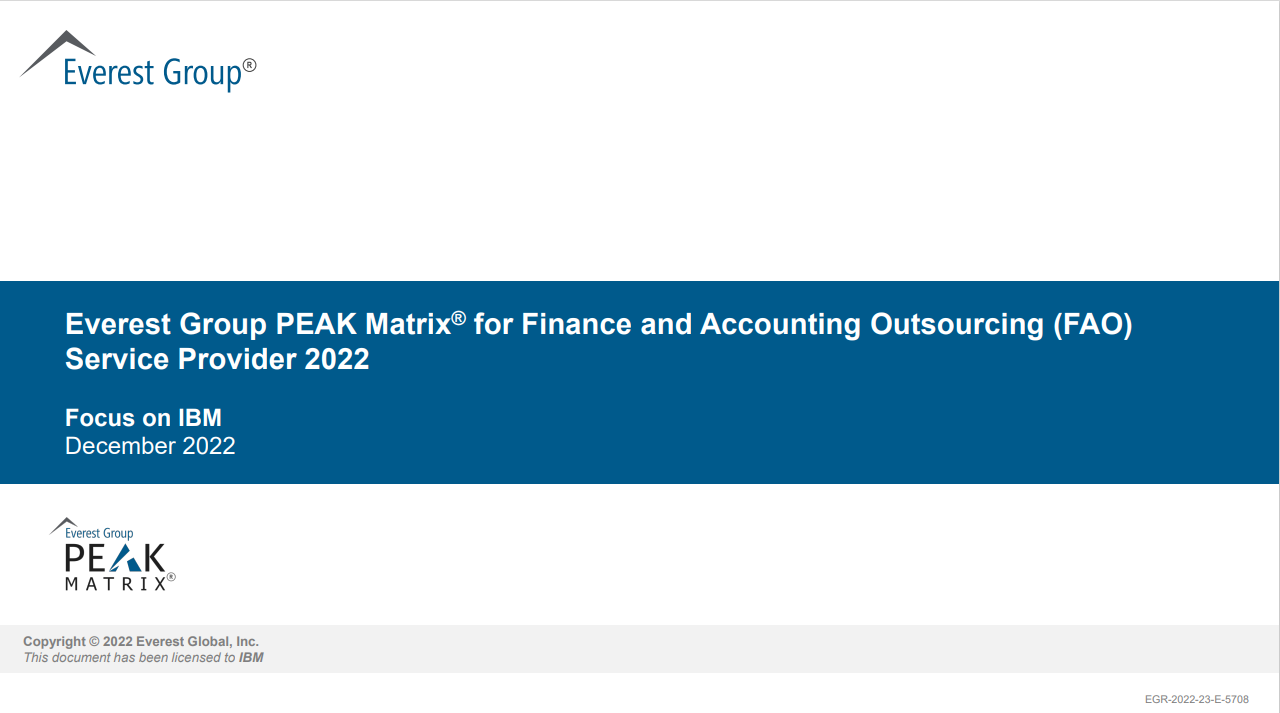Outsourcing: The advantages and disadvantages
Does IT outsourcing really deserve its bad rap? Will Garside weighs up the benefits

The notion of outsourcing has sometimes been given a bad rap.
At its most basic level, outsourcing takes a task that is normally carried out by staff working within an organisation and instead uses an external provider to deliver this process. The rationale for outsourcing is based on many factors but the two common drivers are to reduce the cost of a particular task and to gain a level of predictability around its delivery.
The complexity of
IT
makes it a great target of outsourcing, and according to outsourcing analyst NelsonHall, IT outsourcing (ITO) contracts agreed in 2014 totalled 3.44bin in value. And in the last few years, outsourcing, and not just across IT, has grown considerably with 2014 experiencing a 15 percent rise over the previous year.
Part of the increase is a response to the recent financial crisis and in the public sector especially, the massive cuts to public sector spending is forcing central and local government to look at ways of get more from slimmer budgets.
The heart of any outsourcing deal is the contract. Essentially, any existing internal processes will have a number of metrics that need to be delivered and an associated cost in full time employees, equipment, property, training and a whole myriad of factors that are required to deliver to that metric. In an IT world, that might be supporting a number of IT end users, applications and network devices. In a non-IT world that could mean collecting rubbish from residential properties or taking billing queries in a call centre.
Get the ITPro daily newsletter
Sign up today and you will receive a free copy of our Future Focus 2025 report - the leading guidance on AI, cybersecurity and other IT challenges as per 700+ senior executives
Where outsourcing excels is in the ability to circumvent some of the costs that organisations have little control over. Wages are a major factor. Consider that average UK call centre worker is paid about 23,000 per year, a comparable call centre worker in New Deli, India earns barely a quarter of this amount and expects far fewer benefits in kind such as holiday, sick pay and maternity leave.
The other issue is staff hiring, retention and skills training. Specialist IT skills such as
application development
are expensive to gain and develop in-house, especially if organisations are just working toward a project that has little ongoing development.
The last factor that favours outsourcing is flexibility. Although most contracts are based on multiple year commitments, many have clauses to allow customers to increase supply, with suitable remuneration, which allows organisations to scale up based on a graded scale if for example demand increases. And if, in theory, the outsourcers fails to deliver on the deal; the customer can cancel the contract and in some cases get compensation.
It is in this last point that some of the theoretical benefits of outsourcing often fall down. Particularly in the public sector, the large outsourcing firms of the like of BT, Fujitsu, Capita et al tend to have better legal and technical minds working up contracts then public sector buyers. Which means that terms are often less competitive than they could be and the costs and complexity of ending a contract early may well outweigh the cost of just accepting an underperforming deal.
In addition, there is both complexity validating that the Service Level Agreements that underpin outsourcing agreements are actually being met. The very act of measurement can be a costly exercise in its own right.
Lastly, the reputational aspects of outsourcing are sometimes questioned. Although many large financial and service providers outsourced call centres overseas in the mid 2000's, in recent years, many of these early adopters have brought centres back to UK operators and in some cases, even back in house, to show a sense of patriotism in the face of the perception that outsourcing deprives UK workers of jobs.
In response to a slight backlash, a growing counter trend is insourcing. The idea is not new and is essentially the extended use of contractors and re-tasking processes to internal resources that may be underutilised. Insourcing has grown in lock step with a number of tends such as zero hours contracts which circumvent some of the employment rights that give workers protection and costs to employing full time staff - as well as the issues around skills shortages.
Insourcing is not always bringing in more resources on a contract bases. In some cases, it may mean transferring a process from one area of the organisation to another that is better equipped to deal with it. For example, relocating end user
IT support
from satellite offices to a central IT help desk with additional resources may be dressed up as insourcing.
For the IT industry and the channel, the separation between insourcing, outsourcing, contracting, body-shopping, which is essentially acting as a recruiting agent, and other derivatives can be relatively slight. The main delimiter is who has the responsibility for the employed staff, adherence to the corresponding legal employment legislations and how the project or processes is delivered and paid for.
Yet, actually working out savings is hard. Capita, a major IT outsourcer has stated that "We would expect customers to be saving at least 30 percent on a multi-year outsourced IT engagement. It really depends on how they adopt utility computing but cost savings and service transformation are what makes outsourcing compelling."
Yet this 30 percent saving is hard to pin down with independent evidence or non-partisan imperial studies thin on the ground or pre 2008. Even within the public sector with oversight from bodies such as the National Audit Office, definitive evidence that tally's up both successes and a failure to provide a baseline is scant.
With new technologies such as cloud and SaaS providing an enabler for more outsourcing, the growth is likely to continue. With government promotion of its G-Cloud supposedly encouraging ICT suppliers from the SME sector; getting into the outsourcing and insourcing field is easier than at any point in history especially as continued squeeze of the public sector forces more innovative ways of delivering services for less.
The one bit of advice for any VAR thinking of offering these services is show evidence. Even a small project that generates a tangible benefit should be documented and publicised with the help of the customers. The old fashioned case study backed up with hard data is the single best tool for winning more business. Offering better contract terms if a customer will agree to such a study is a good tactic to help bring these benefits to the fore.
This article originally appeared on sister title Channel Pro.
-
 CISA issues warning in wake of Oracle cloud credentials leak
CISA issues warning in wake of Oracle cloud credentials leakNews The security agency has published guidance for enterprises at risk
By Ross Kelly
-
 Reports: White House mulling DeepSeek ban amid investigation
Reports: White House mulling DeepSeek ban amid investigationNews Nvidia is caught up in US-China AI battle, but Huang still visits DeepSeek in Beijing
By Nicole Kobie
-
 Magic quadrant for finance and accounting business process outsourcing 2024
Magic quadrant for finance and accounting business process outsourcing 2024whitepaper Evaluate BPO providers’ ability to reduce costs
By ITPro
-
 Capita CEO to be replaced by AWS exec
Capita CEO to be replaced by AWS execNews Jon Lewis is leaving Capita after more than five years
By Richard Speed
-
 Everest Group PEAK Matrix® for Finance and Accounting Outsourcing (FAO) service providers 2022
Everest Group PEAK Matrix® for Finance and Accounting Outsourcing (FAO) service providers 2022Whitepaper Understanding and assessing FAO service providers based on their vision & capabilities and impact on the FAO market
By ITPro
-
 Botched IT upgrade inadvertently cuts pay for Next employees
Botched IT upgrade inadvertently cuts pay for Next employeesNews Salary issues have dogged the retailer since February after it outsourced payroll to Oracle
By Bobby Hellard
-
 HCL Technologies accused of underpaying H-1B workers by $95 million per year
HCL Technologies accused of underpaying H-1B workers by $95 million per yearNews Report claims the Indian IT outsourcing firm has committed wage theft and called on the federal government to curb abuses of the visa programme
By Zach Marzouk
-
 Podcast transcript: How umbrella companies exploit IT contractors
Podcast transcript: How umbrella companies exploit IT contractorsIT Pro Podcast Read the full transcript for this episode of the IT Pro Podcast
By IT Pro
-
 The IT Pro Podcast: How umbrella companies exploit IT contractors
The IT Pro Podcast: How umbrella companies exploit IT contractorsIT Pro Podcast Is tighter regulation needed to stop workers from being cheated out of earnings?
By IT Pro
-
 MPs blast ‘unacceptable’ rise in online banking failures
MPs blast ‘unacceptable’ rise in online banking failuresNews Select committee also brandishes third-party cloud providers as a "source of systemic risk"
By Keumars Afifi-Sabet
